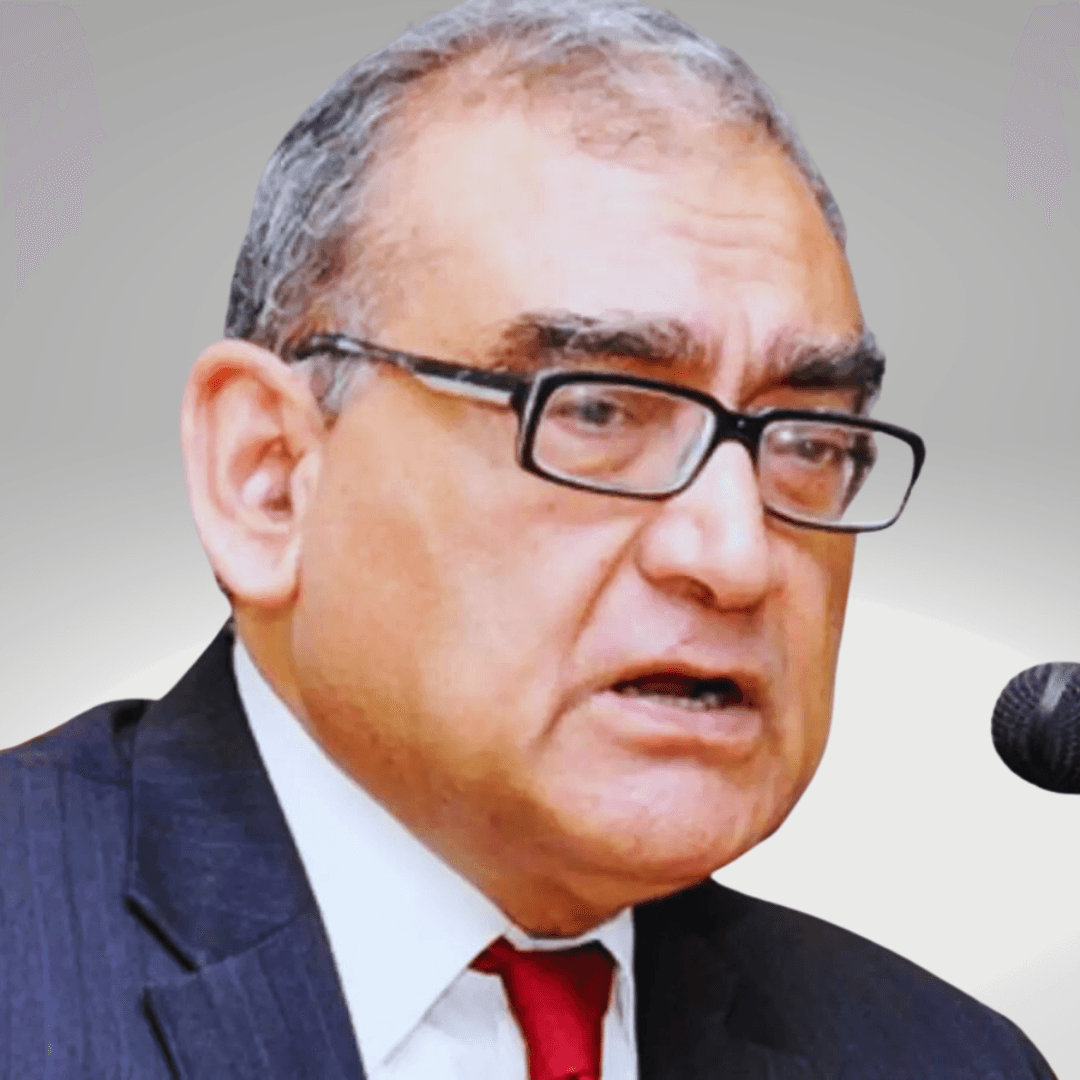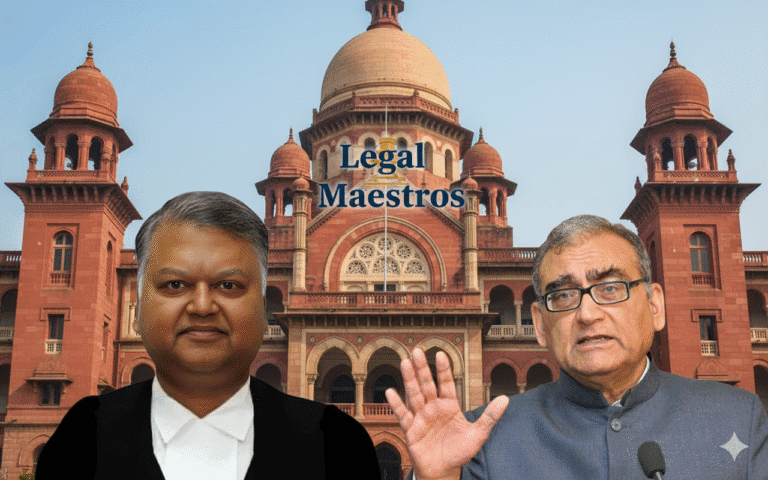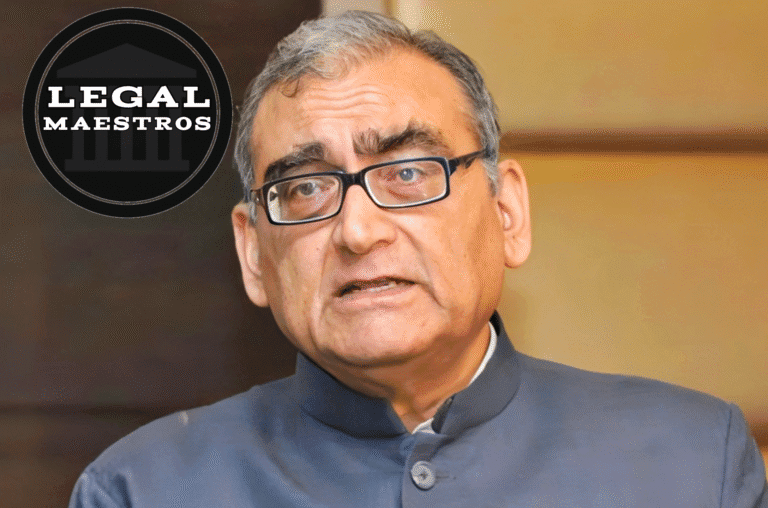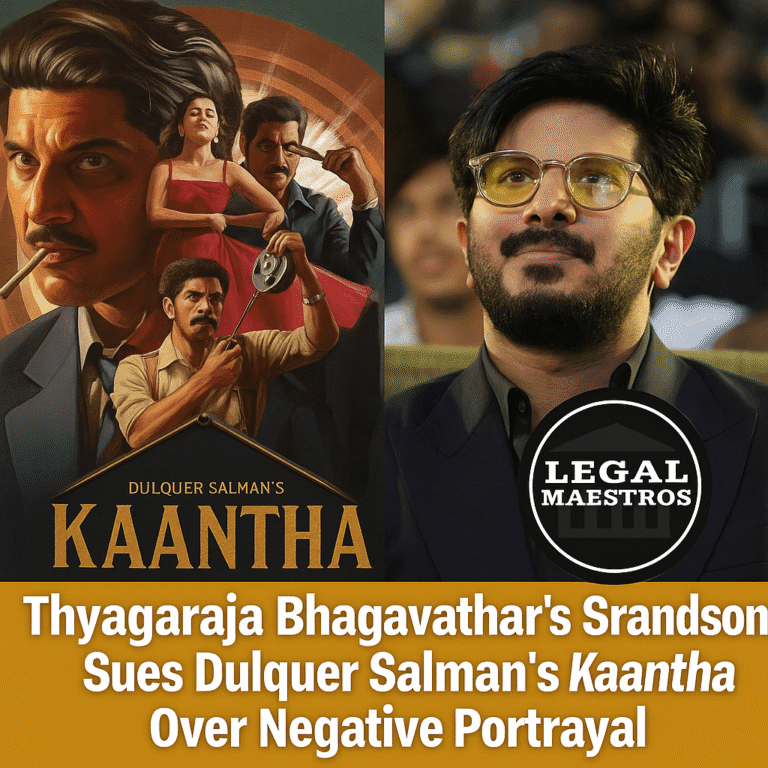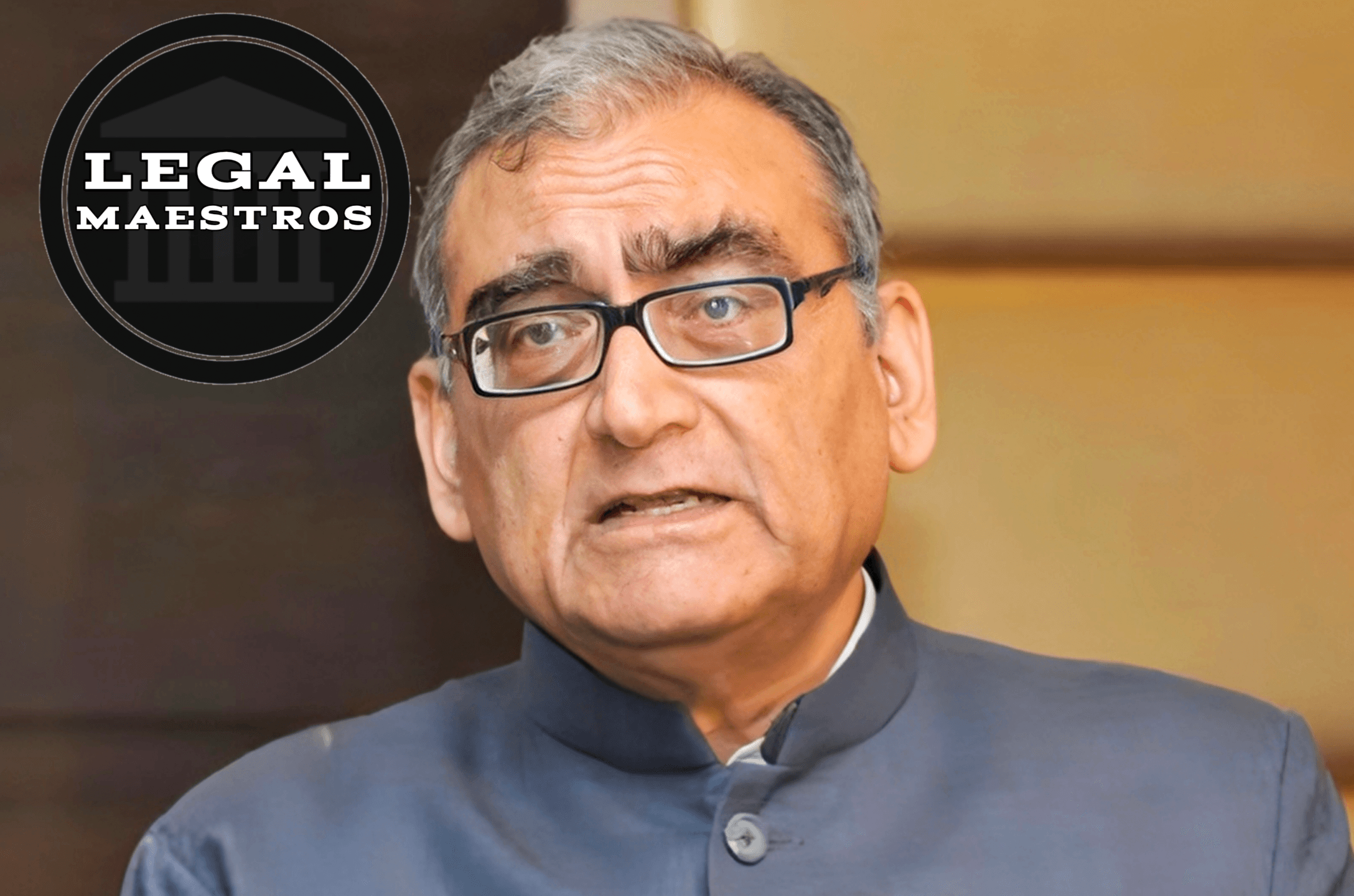
markandey katju
Many people know of Portia’s famous speech in Shakespeare’s play ‘The Merchant of Venice’ in which she pleaded that justice should be tempered with mercy.
But Shakespeare was not a judge, whereas I have been one for 20 years. And my own answer to the question posed in the title of this article is both yes and no, depending on the facts and circumstances of the case. Let me explain:
1. Cases where I tempered justice with mercy
For any queries or to publish an article or post or advertisement on our platform, do call at +91 6377460764 or email us at contact@legalmaestros.com.
The ancient Indian jurist Brihaspati has said :
” Kevalam shaastram aashritya na kartavyo vinirnayah
Yuktiheeney vichaare tu dharma haani prajaayate ”
For any queries or to publish an article or post or advertisement on our platform, do call at +91 6377460764 or email us at contact@legalmaestros.com.
i.e.
” A decision should not be given merely by following the letter of the law
For if the decision is wholly unreasonable, injustice will follow ”
For any queries or to publish an article or post or advertisement on our platform, do call at +91 6377460764 or email us at contact@legalmaestros.com.
( quoted in Smriti Chandrika by Devan Bhat of the Dravid School of Mitakshara )
I may give some examples where I followed this dictum
(1) One was in the Supreme Court verdict I gave in 2011 in Commissioner of Police vs Sandeep Kumar ( see online ).
For any queries or to publish an article or post or advertisement on our platform, do call at +91 6377460764 or email us at contact@legalmaestros.com.
The facts of that case were these : .
One Sandeep Kumar, a young man, applied for the post of Head Constable (Ministerial) in 1999. In the application form it was printed :
“12(a) Have you ever been arrested, prosecuted, kept under detention, or bound down/fined, convicted by a court of law for any offence ? ”
Against that column Sandeep Kumar wrote : ‘No’. This was undoubtedly a false statement, because he and some of his family members had been prosecuted in a criminal case by a tenant, under section 325/34 Indian Penal Code. This case was later compromised on 18.01.1998, and Sandeep Kumar and his family members were acquitted on 18.01.1998.
For any queries or to publish an article or post or advertisement on our platform, do call at +91 6377460764 or email us at contact@legalmaestros.com.
In response to the advertisement issued in January 1999 for filing up the posts of Head Constable (Ministerial), Sandeep Kumar applied on 24.02.1999, but did not mention in his application form that he had been prosecuted in the aforesaid criminal case ( even though he was subsequently acquitted ).
He qualified in all the tests for selection to the post of Head Constable (Ministerial), and would have consequently been appointed. However, it later came to light that he had been prosecuted in a criminal case with his tenant ( though later on it been compromised in 1998 and he had been acquitted ).
On 02.08.2001 a show cause notice was issued to him asking him to show cause why his candidature for the post should not be cancelled because he had concealed the fact of his involvement in the aforesaid criminal case and had made a wrong statement in his application form. He submitted his reply on 17.08.2001 but the authorities were not satisfied with the same and on 29.05.2003 cancelled his candidature.
For any queries or to publish an article or post or advertisement on our platform, do call at +91 6377460764 or email us at contact@legalmaestros.com.
In appeal the matter came up before my bench ( with Justice Gyan Sudha Mishra ) in the Supreme Court, and we set aside the cancellation of his candidature. Our reasons were these :
When the incident happened the respondent was about 20 years of age. At that age young people often commit indiscretions, and such indiscretions can often been condoned. After all, youth will be youth. They are not expected to behave in as mature a manner as older people. Hence, our approach should be to condone minor indiscretions made by young people rather than to brand them as criminals for the rest of their lives.
In this connection, I referred to the character Jean Valjean in Victor Hugo’s famous novel ‘Les Miserables’, in which for committing a minor offence of stealing a loaf of bread for his hungry family Jean Valjean was branded as a thief for his whole life.
For any queries or to publish an article or post or advertisement on our platform, do call at +91 6377460764 or email us at contact@legalmaestros.com.
I observed that the modern approach should be to reform a person instead of branding him as a criminal all his life.
I also referred to the case of Welsh students mentioned by Lord Denning in his book ‘Due Process of Law’. It appears that some students of Wales were very enthusiastic about the Welsh language and they were upset because the radio programmes in Wales were being broadcast in the English language and not in Welsh. Then came up to London and invaded the High Court, creating a ruckus there. They were found guilty of contempt of court and sentenced to prison for three months by the High Court Judge. They filed an appeal before the Court of Appeals. Allowing the appeal, Lord Denning observed :-
“I come now to Mr. Watkin Powell’s third point. He says that the sentences were excessive. I do not think they were excessive, at the time they were given and in the circumstances then existing. Here was a deliberate interference with the course of justice in a case which was no concern of theirs. It was necessary for the judge to show – and to show to all students everywhere – that this kind of thing cannot be tolerated. Let students demonstrate, if they please, for the causes in which they believe. Let them make their protests as they will. But they must do it by lawful means and not by unlawful. If they strike at the course of justice in this land – and I speak both for England and Wales – they strike at the roots of society itself, and they bring down that which protects them. It is only by the maintenance of law and order that they are privileged to be students and to study and live in peace. So let them support the law and not strike it down.
But now what is to be done? The law has been vindicated by the sentences which the judge passed on Wednesday of last week. He has shown that law and order must be maintained, and will be maintained. But on this appeal, things are changed. These students here no longer defy the law. They have appealed to this court and shown respect for it. They have already served a week in prison. I do not think it necessary to keep them inside it any longer. These young people are no ordinary criminals. There is no violence, dishonesty or vice in them. On the contrary, there was much that we should applaud. They wish to do all they can to preserve the Welsh language. Well may they be proud of it. It is the language of the bards – of the poets and the singers – more melodious by far than our rough English tongue. On high authority, it should be equal in Wales with English. They have done wrong
– very wrong – in going to the extreme they did. But, that having been shown, I think we can, and should, show mercy on them. We should permit them to go back to their studies, to their parents and continue the good course which they have so wrongly disturbed.”
[ Vide : Morris Vs. Crown Office, (1970) 2 Q.B. 114 ]
For any queries or to publish an article or post or advertisement on our platform, do call at +91 6377460764 or email us at contact@legalmaestros.com.
In my opinion, judges should show the same wisdom as displayed by Lord Denning.
As already observed above, youth often commit indiscretions, which are often condoned.
It is true that in the application form the respondent did not mention that he was involved in a criminal case. Probably he did not mention this out of fear that if he did so he would automatically be disqualified.
For any queries or to publish an article or post or advertisement on our platform, do call at +91 6377460764 or email us at contact@legalmaestros.com.
Strictly speaking, I should have decided against Sandeep Kumar, for he had indeed not disclosed in his application form that he had once been prosecuted in a criminal case ( even though he was subsequently acquitted ). However, following Brihaspati’s dictum ( quoted above ), I felt that a lenient view should be taken. After all, it was not such a serious offence like murder, dacoity or rape, and he had also been later acquitted. Hence a more compassionate view should be taken in the matter, as was often done by the famous American Judge Frank Caprio
https://countercurrents.org/2025/08/compassionate-justice-and-judge-frank-caprio
For the reasons given above, I decided the case in Sandeep Kumar’s favour
For any queries or to publish an article or post or advertisement on our platform, do call at +91 6377460764 or email us at contact@legalmaestros.com.
(2) Another example is my verdict in Gopal Das thru brother Anand Vir vs Union of India
https://indiankanoon.org/doc/1662952
Details of this case are given in the article below, so I am not repeating the same
For any queries or to publish an article or post or advertisement on our platform, do call at +91 6377460764 or email us at contact@legalmaestros.com.
https://timesofindia.indiatimes.com/blogs/satyam-bruyat/the-power-of-urdu-poetry
(3) Apart from my judgments, I also often made appeals to the President of India/ Government for mercy in some matters, e.g. in the case of Devinderpal Singh Bhullar, who had been sentenced to death, and on my appeal the death sentence was commuted to life sentence
For any queries or to publish an article or post or advertisement on our platform, do call at +91 6377460764 or email us at contact@legalmaestros.com.
I also appealed for release of Abdul Qadeer who had been given a life sentence, and on my appeal he was released
2. Cases where I showed no mercy
For any queries or to publish an article or post or advertisement on our platform, do call at +91 6377460764 or email us at contact@legalmaestros.com.
However, in many cases I showed no mercy
Some of these are given in the article below, so I am not repeating them :
When I became a Judge in the Allahabad High Court in 1991 I was new to the job. So I thought of getting some guidance as to how to function as a Judge, and for that I turned to the Shantiparva of the great Hindu epic Mahabharata.
For any queries or to publish an article or post or advertisement on our platform, do call at +91 6377460764 or email us at contact@legalmaestros.com.
When the Mahabharat war was over, Bheeshma Pitamah, the eldest among the Kaurav warriors, was lying on a bed of arrows. Lord Krishna told Yudhishthir that soon he was going to become the King, as the Kauravas, his cousins, had been defeated. So he must learn statecraft ( raj dharma), and the best person to teach him this was his grand uncle Bheeshma Pitamah, who was shortly going to give up his body, and therefore this was the best opportunity to learn from him.
On Lord Krishna’s suggestion, Yudhishthir went to Bheeshma Pitamah, and after paying obeisance to him, started asking him questions as to how a king should conduct himself. Yudhishthir would ask him one question, and Bheeshma Pitamah would reply. Then Yudhishthir would ask another question, and received the reply to that too. In this way almost the whole of Shantiparva consists of questions and answers.
Among the things which Bheeshma Pitamah said to Yudhishthir was contained in this shloka :
For any queries or to publish an article or post or advertisement on our platform, do call at +91 6377460764 or email us at contact@legalmaestros.com.
” Mridur hi raja satatam langhyo bhavati sarvashah
Teekshrnyaat cha udvijate lokah, tasmaat ubhayam aashraya “
i.e.
For any queries or to publish an article or post or advertisement on our platform, do call at +91 6377460764 or email us at contact@legalmaestros.com.
” If the King is always lenient, nobody pays heed to his orders
And if he is always harsh the people become terrorized
Therefore a King should sometimes be lenient and sometimes harsh ( depending on the circumstances ) “
For any queries or to publish an article or post or advertisement on our platform, do call at +91 6377460764 or email us at contact@legalmaestros.com.
Bheeshma Pitamah said the same thing in another shloka of the Shantiparva :
” Tasmaat naiva mridur nityam teekshno naiva bhavet nripah
Vaasantarka iva shriman na sheeto na cha dharmadah “
For any queries or to publish an article or post or advertisement on our platform, do call at +91 6377460764 or email us at contact@legalmaestros.com.
i.e.
” Just as in the springtime ( vasant ritu ) the Sun makes the weather neither too cold nor too hot, so also the King should neither be too harsh nor too lenient “
Bheeshma Pitamah went on to say :
For any queries or to publish an article or post or advertisement on our platform, do call at +91 6377460764 or email us at contact@legalmaestros.com.
” The King should not always forgive, for then the wicked people shall regard him as weak and ignore him.
The King should take care of people who cannot take care of themselves, e.g. the old and the infirm. and punish the wicked.
O Yudhishthir, I know that by nature you are forgiving and merciful, but the state cannot be governed in this manner. By always forgiving and being merciful, you will be regarded as a coward by the people and not given respect.
For any queries or to publish an article or post or advertisement on our platform, do call at +91 6377460764 or email us at contact@legalmaestros.com.
O Yudhishthir. you must never oppress the weak or the poor, for then their anger will one day become like a raging fire and devour you. “
There were many other such marvellous shlokas in the Shantiparva.
I was totally absorbed in reading and thinking about all this for a long time. How could our ancestors think out such detailed and sagacious features of statecraft thousands of years ago ? What kind of people were they ? What sublime, lofty, and exalted ideas !
For any queries or to publish an article or post or advertisement on our platform, do call at +91 6377460764 or email us at contact@legalmaestros.com.
The judicial function is a sovereign function, and used to be performed in earlier times by the King himself. Later, when the King acquired many other functions, he delegated the judicial function to his delegates, who became known as Judges. So the advice of Bheeshma Pitamah applies not only to Kings, but also to Judges.
I followed this advice throughout my 20 year judicial career, from 1991 when I was appointed Judge of Allahabad High Court, to 2011 when I retired as a Supreme Court Judge.
If a case came before me of a hardened criminal, a serial killer, or a big time financial crook, or of ‘honour killing ‘, ‘ encounter killing ‘, dowry death, harrassment of the poor by the rich and powerful, etc I was very harsh and gave harsh punishment.
For any queries or to publish an article or post or advertisement on our platform, do call at +91 6377460764 or email us at contact@legalmaestros.com.
But if the case was of a handicapped person, a widow, a person in distress for no fault of his, an orphan, an oppressed or poor person, etc I was very tender and compassionate, and tried to bend the law as much as I could in his favour to give him relief.
I recommend everyone to read the Shantiparva of the Mahabharata

